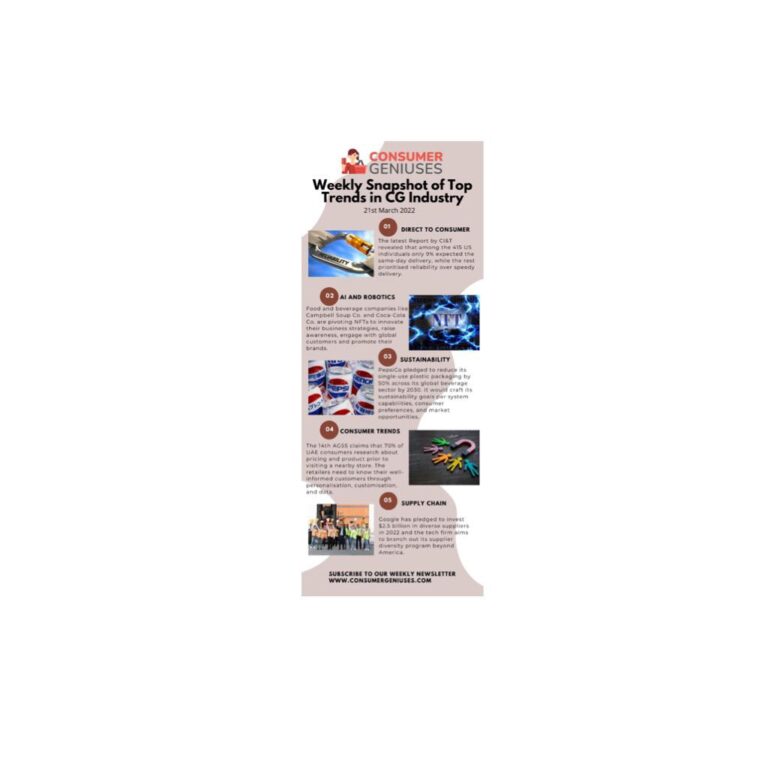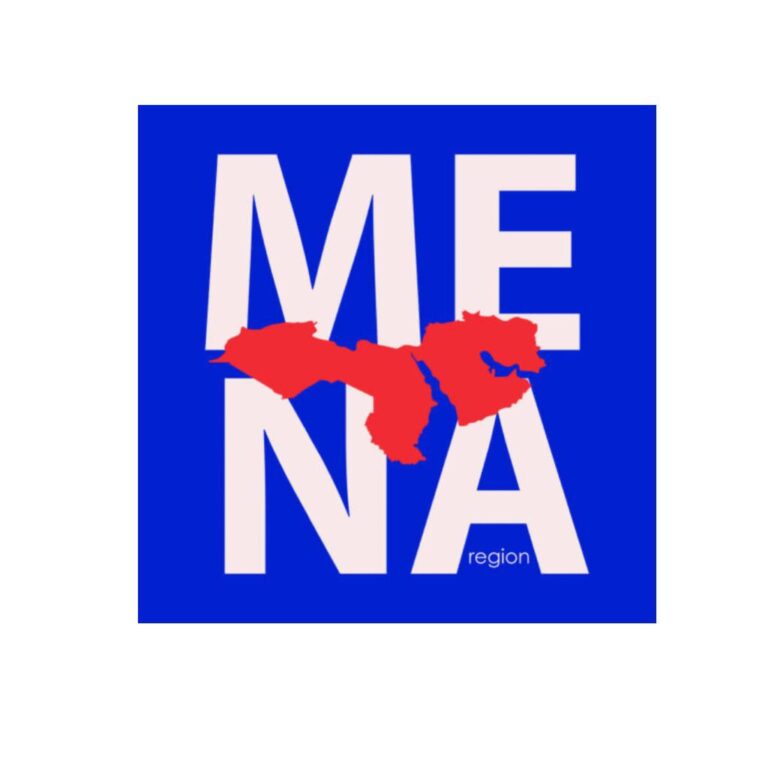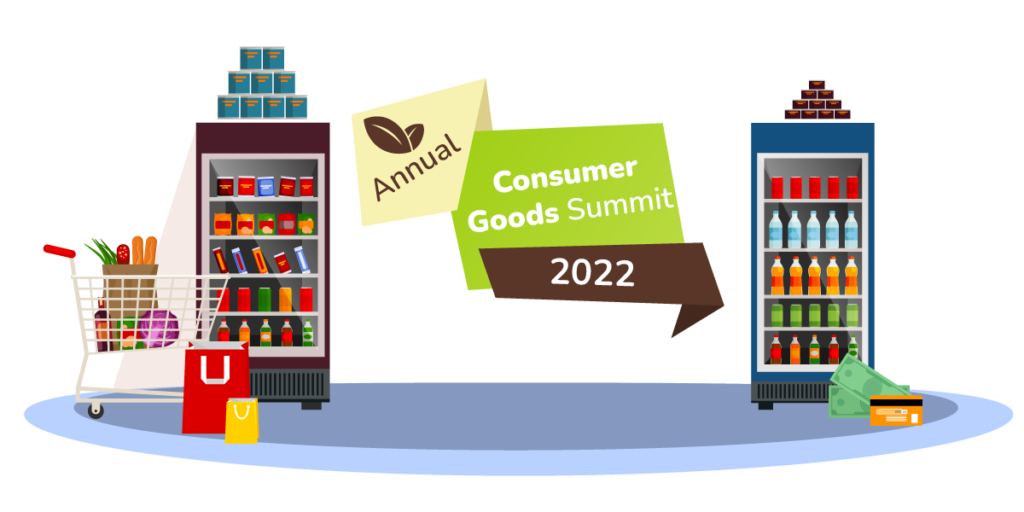
Weekly snapshot of top trends in CG industry
This is the weekly snapshot of top trends from the Consumer Goods industry in the past week (14th March-18th March). We have covered different categories, including 1, DTC: The latest Report by CI&T revealed that among the 415 US individuals only 9% expected the same-day delivery, while the rest prioritised reliability over speedy delivery. 2, AI and Robotics: Food and beverage companies like Campbell Soup Co. and Coca-Cola Co. are pivoting NFTs to innovate their business strategies, raise awareness, engage with global customers and promote their brands. 3, Sustainability: PepsiCo pledged to reduce its single-use plastic packaging by 50% across its global beverage sector by 2030. It would craft its sustainability goals per system capabilities, consumer preferences, and market opportunities. 4, Consumer Trends: The 14th AGS study claims that 70% of UAE consumers research about pricing and product prior to visiting a nearby store. The retailers need to know their well-informed customers through personalisation, customisation, and data. 5, Supply Chain: Google has pledged to invest $2.5 billion in diverse suppliers in 2022 and the tech firm aims to branch out its supplier diversity program beyond America.





